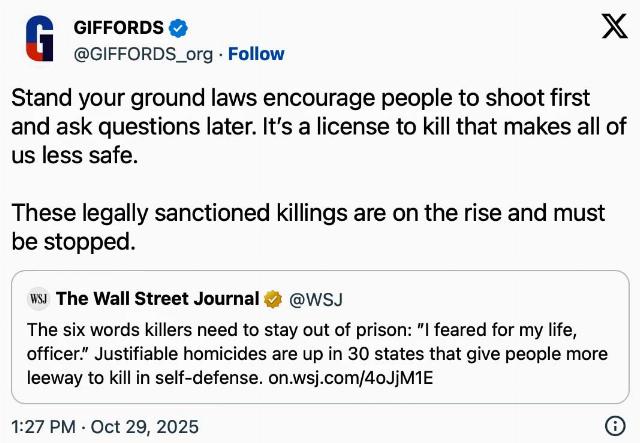What are Dangerous and Unusual Weapons?
In District of Columbia v. Heller (2008), the United States Supreme Court said that the Second Amendment does not protect the right to keep and bear “dangerous and unusual weapons,” it protects only arms in “common use.” In support of its conclusion, the Court cited the following authorities and case law:
Neither the Heller opinion nor any of the cited authorities and case law support that conclusion. Most of the Court’s citations are circular, but all invariably point to English common law and statutes that preceded the adoption of the Second Amendment.
Moreover, had the Court bothered to read its own citations, which in turn cited English common law and statutes, it would have discovered that England did not ban “dangerous and unusual weapons.” England’s prohibitions on the bearing of dangerous and unusual weapons (the citations point to body armor) did not prohibit the possession of those arms. What was prohibited was bearing those arms in public except for certain limited exceptions, such as quashing riots and stopping affrays (e.g., street fights).
Moreover, there was no “common use” test. England was a class-based society with restrictions on the arms one could keep and bear, depending on one’s class. For example, in feudal England, only the upper classes could keep and bear what we today call broadswords, except traveling merchants, whose social class would normally have precluded them from doing so. Not that English peasants and serfs could have afforded to purchase a broadsword.
Which isn’t to say that the lower classes never touched a broadsword. But it would have been in a public defense context, and they were not expected to purchase a broadsword or other weapons of war that they could not afford.
If there were a weapon in “common use,” it was the English longbow, which they could afford. The right to keep and bear arms, and the specific arms protected by the Second Amendment, which we American citizens have the right to keep and bear, simply cannot be reconciled with English statutory and English common law. At least not unless American citizens are analogous to Medieval English serfs and peasants. True, this is a view widely shared by judges and politicians, but it was not the view of the Founding Fathers who wrote the Second Amendment, or the American People who voted to enact the Second Amendment into law, or the view of those who wrote the Fourteenth Amendment that was likewise enacted into law by the American People.
During oral argument in my California Open Carry lawsuit, Judge Bybee put to me that the Second Amendment was based on the English Bill of Rights. I responded by saying that we expanded on those rights. Had I been given the time to elaborate, I would have reminded him that the English Bill of Rights applied only to Protestants (and only some of them), not to Catholics. And, of course, the English “right” to keep arms was a statutory right, not a fundamental right that we Americans have even if there were no enumerated Second Amendment right. Statutory rights exist at the whim of the legislature, and the English Parliament has long since ended any right to keep arms, let alone bear them for the purpose of self-defense.
Judge Bybee would go on to write the 7-4 en banc opinion in Young v. Hawaii (2021) that held there is no right to bear any concealable arm in public, openly or concealed, because their mere existence offends the king.
The United States Supreme Court vacated the Young v. Hawaii decision and threw the case back to the 9th Circuit in 2022.
With the exceptions of prohibitions on the use and/or carrying of concealed weapons, which existed from the 13th century, and throughout the history of American colonial and American states, Heller’s embracement of prohibitions on short-barreled shotguns and machine guns cannot be reconciled with the types of arms the American People intended the Second Amendment to protect when it was enacted in 1791 or when the Fourteenth Amendment was enacted in 1868.
19th-century Courts and legislatures disagreed on whether firearms that are easily and ordinarily carried concealed can be banned, but they were all in agreement that the Second Amendment protects arms used in battle.
And that included cannons, a type of arm that cannot be carried on one’s person. Heller’s exclusion of arms that one would take into battle is ahistorical and inconsistent with Heller’s first citation that justified prohibitions on “dangerous and unusual weapons” and seemingly limited the right to arms in “common use”—United States v. Miller (1939). A decision that makes no mention of “dangerous and unusual.” What Miller said was, “[O]rdinarily when called for service these men were expected to appear bearing arms supplied by themselves and of the kind in common use at the time.”
Indeed, the Supreme Court in Miller adopted the view of many 19th-century courts that the Second Amendment protects only weapons of war—”Certainly it is not within judicial notice that this weapon [short-barreled shotguns] is any part of the ordinary military equipment or that its use could contribute to the common defense.”
In 2008, when the Heller decision was published, the M-16 machine gun was part of the “ordinary military equipment,” and certainly contributed “to the common defense.”
So how did we go from the Second Amendment only protects weapons of war to the Second Amendment does not protect weapons of war?
Technically, the Heller opinion did not say that “M-16 rifles and the like” are not arms protected by the Second Amendment, but the paragraph was so poorly worded that judges have leaped to the conclusion that Heller held that they are not.
In a Fox News interview with Chris Wallace, Justice Scalia said that the Court had not decided whether hand-held rocket launchers that can bring down an airplane or firearms that can fire 100 rounds per minute are, or are not, arms protected by the Second Amendment. In the interview, Justice Scalia gave an example of what the right to keep and bear arms did not protect—walking down Main Street while carrying an executioner’s axe in a manner intended to terrorize the townfolk, as that constituted an affray.
While an executioner’s axe may have been unusual, and is certainly deadly, it wasn’t the axe per se that was prohibited; it was the carrying of the axe in a threatening manner. A woodsman’s or shipwright’s axe was commonly carried, and for certain classes of Englishmen, the carrying (bearing) of swords was required by law and custom. It was not a crime to carry them in public unless they were carried in a threatening manner.
And contrary to the defendants’ position in my California Open Carry lawsuit, which claims that simply openly carrying a firearm is, in and of itself, threatening, I have centuries of English and American common law, as well as California statutory law, saying, and California Courts holding, that merely openly carrying a firearm is not threatening.
Some people hate the mere sight of guns, and concealed carriers hate Open Carry for different reasons, but, for now, there is no Heckler’s veto of the Second Amendment.
The Supreme Court could grant an “assault rifle’’ ban cert petition, and clean up the mistakes made in Heller and NYSRPA v. Bruen, and US v. Rahimi. But I fear that if the Court does, it will simply poke more holes in the Second Amendment.



